Professor Paul Dalziel leads the Rewarding Sustainable Practices research programme. He spoke to Vincent Heeringa about his work and the drive to find value for New Zealand
Economists are not known for their soft edges. And academic economists perhaps even less so.
But it doesn’t take very long to discover that Paul Dalziel is all heart.
The professor of economics and deputy director of the Agribusiness Economic Research Unit has made a career out of studying economic welfare and latterly wellbeing. In fact he’s written the book on it.
Paul also leads the Rewarding Sustainable Practices and its predecessor, Integrating Value Chains, funded by Our Land and Water. The purpose is to uncover the role that value chains play in creating value for New Zealand primary products, and ensuring that value is passed back to New Zealand farmers and growers.
Value created should be value captured and value shared, he says.
Sharing value is at the heart of his work.
“It goes back to my grandfather, I guess. Shortly before my father was born my grandfather was made redundant in the depths of the Great Depression, in 1933. It was six years before he found employment again. And the impact on the family, well, that passed through the generations. We grew up with a sense that we are all in this together, that we have a responsibility for ensuring the gifts we have are available for everybody.”
Paul’s sister Lianne Dalziel went on to become an MP, then mayor of Christchurch. Paul considered entering the priesthood and even left university for a Catholic seminary where he was exposed to Catholic social teaching. This sent him back to economics.
“I could see we should design systems ensuring the fruits of the Earth are accessible to the whole human population. I thought, yes, that's the sort of thing that I could do. So I left the seminary before the year was up and returned to the University of Canterbury and started studying economics seriously that year.”
Paul has now been an academic economist for nearly 40 years. He became a major contributor to New Zealand’s economic policies and is a leading thinker on the economics of wellbeing.
From values to value
For Paul, the value chains research adds a new twist to the old challenge: how does New Zealand move from volume to value. Answer: by elevating the role of values.
“The fundamental theories of welfare economics were about the role that markets play in improving welfare and so on. But this work we've done around value chains has really brought together the role collective values can play within a supply chain, where all of the participants are motivated by shared values to create, capture and share the value delivered to consumers.
“New Zealand has always been determined to produce food to a high standard. But the standards keep rising. The aim now is to produce food, beverages and fibre within planetary boundaries – and with social and ethical standards met, while providing a great experience for the final consumer.”
He says it’s the inclusion of values – social, environmental, cultural, ethical, experiential – that is accelerating New Zealand’s progression from commodity producer to premium exporter.
The UK lamb experience
So how can incorporating values into value chains accelerate the journey towards a high margin, premium expert sector? Paul gives an example.
“I was visiting a UK supermarket with my colleague Caroline Saunders. There were shelves four layers high, and at the top were the individually wrapped and premium priced cuts of meat with all sorts of claims: that this is good for the environment, that it's travelled from Wales, that it's produced from family farms and so on. And then as you went down the shelves, the cuts of meat got bigger and the labelling got smaller and customers had to stoop to get down – and there at the bottom was a New Zealand leg of lamb. It had the lowest price of per kilogram of all.
“It was an eye opener – that all of those conservation values that our beef and lamb sector already have were totally invisible.”
So we just need better marketing then?
“Yes that’s an important part. But our research shows that it’s the entire supply chain that needs to align around these values. It’s no good having marketing if in fact there’s poor animal management or a distributor with a poor human rights record.
“We find, and the literature supports this, that products don’t compete against product. It’s supply chain against supply chain.”
And the bar keeps lifting, right? What customers were prepared to pay a premium for yesterday has become entry stakes today.
“Our research into credence attributes – that is, what customers value beyond the obvious such as taste and appearance – shows that environmental considerations are much greater now than they have been. So yes, the values that customers expect are changing and well managed supply chain – a value chain – will orientate itself to meet those expectations.”
Good things take time
‘Volume to value’ is not a new idea, of course. Why is it taking so long?
“I think people forget just how long it takes to change. New Zealand's economic prosperity really began with refrigerated transport, where fresh meat could be chilled and frozen and transported to high income markets like Britain, Europe and the USA. More recently we gained a first mover advantage into China. In all of those cases, the main focus was technological development plus international trading relationships. So, the government negotiated free trade agreements or bulk trade agreements with nations; and emphasis for producers was on efficiency and volume.
“Those guaranteed markets have changed. Obviously, that started with the UK moving towards the EU in the 1970s but increasingly we’re competing on the basis of trusted brands that can communicate to consumers the full value they receive when they buy products from New Zealand. So in a sense, it's a relatively recent change because the legacy from those days was sufficient to keep us going, producing good income.”
Cost of sustainable practices
I’m talking to Paul from my desk in Auckland. It’s sunny outside and I have a gentle breeze blowing through my window. The harbour twinkles beyond the Sky Tower.
I don’t know what Paul’s office is like but I can see sunshine reflecting off the wall behind him and I suspect it’s very pleasant.
Much more pleasant than mustering sheep on a cold Wairarapa hillside or milking cows at 5am on a freezing King Country morning.
I put it to Paul that the cost of farming is already high. Now we are layering expectations – for better animal treatment, carbon neutrality, water purity, soil health, improved labour practices, and, by the way, great taste and competitive price – all of that, on top of a hard-pressed farmer who was already qute stressed. Are these credence attributes just another tax? Who is bearing the cost of sustainable practices?
“Yes, it can be seen as a cost. It’s hugely stressful, right? If my costs increase by 10% it will severely affect my bottom line. So I'm not even sure that I'll be able to pass on the farm to the next generation. And family farms, by the way, are one of the values that we hold as a nation and that is respected by consumers. So the first point to note is we need to approach these questions with empathy.
“But here’s two other points to consider. First, we’re all in this waka together. All parts of the economy have to account for their emissions and for their environmental footprint. Everybody's costs are increasing by 10%. And so it is the consumer ultimately that has to pay the extra to cover those costs.
“The second is that this is necessary. You know, the costs are already there. It's just a question of whether they are paid now, or in the future. So, if we do damage to the waterways, if we cause global climate change, then the costs will be carried, but they are being handed on to the next generation. The sooner we get them embedded in current decisions, the better for the next generation.”
And, as the research on credence attributes supports, the brands getting there sooner will reap a premium, right?
“Yes, consumers will reward innovation that finds ways of producing food and fibre that are more sustainably produced. These are things that people are willing to pay for. So we need to let them know that we are doing it.”
The wellbeing economist
In all this talk about adding value, charging a premium and so forth, I ask Paul if he recognises the young firebrand who might have been a priest but chose economics.
“Well, if I go back to Alfred Marshall, who wrote the first textbook on neoclassical economics that is still the foundation for economic policy. His opening sentence is that ‘economics focuses on that part of human activities that is concerned with providing the material requisites of wellbeing.’”
Sounds like he’s quoting scripture.
“Well, yes maybe, though I was never very good at that! Anyway, I think that as a profession we made a mistake. We thought that ‘material requisites’ was all about producing things. The more we produce, the more requisites there are, the more wellbeing there'll be. So it was all about volume, volume, volume. Let's get GDP to grow as fast as we can.
“Now we are waking up to a climate emergency. Production is polluting waterways, it's leaving whole communities isolated on the margins of society. And so volume is not the whole answer. We have to think about how we organise economic activity. And so we're back to the focus on wellbeing.
“There are far more skilled and articulate people than me who have talked about the need to return to our roots on wellbeing. I see myself as part of that community. The volume to value story is still the arc, if you like, but it’s deciding what we value that matters.”
By Vincent Heeringa for Our Land and Water National Science Challenge. All text in this article is licensed for re-use under Creative Commons Attribution 4.0 International (CC BY 4.0)
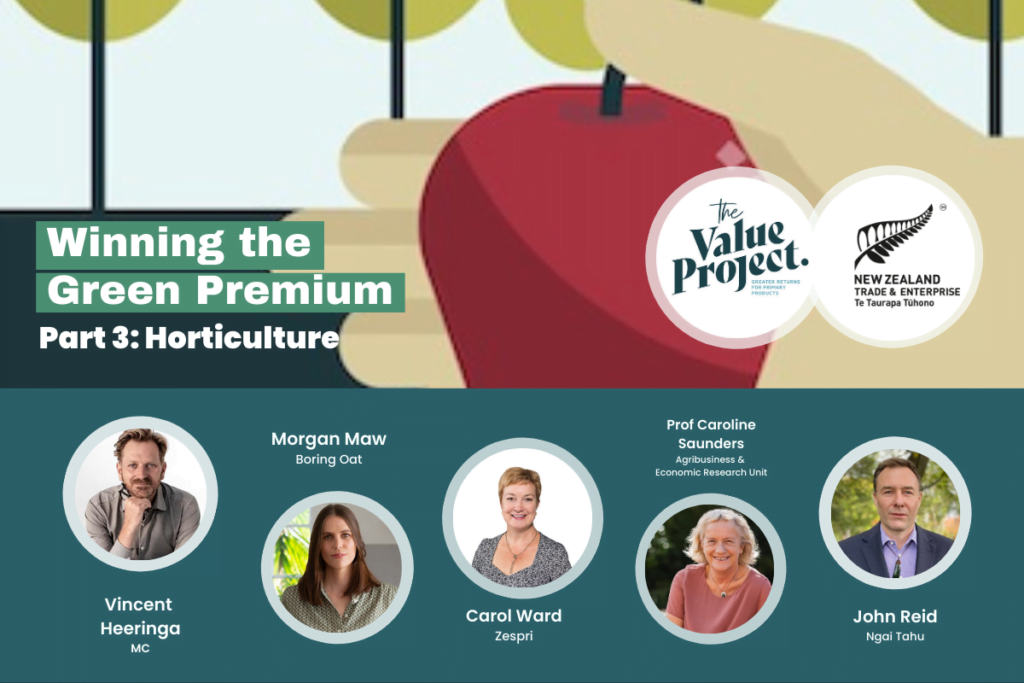
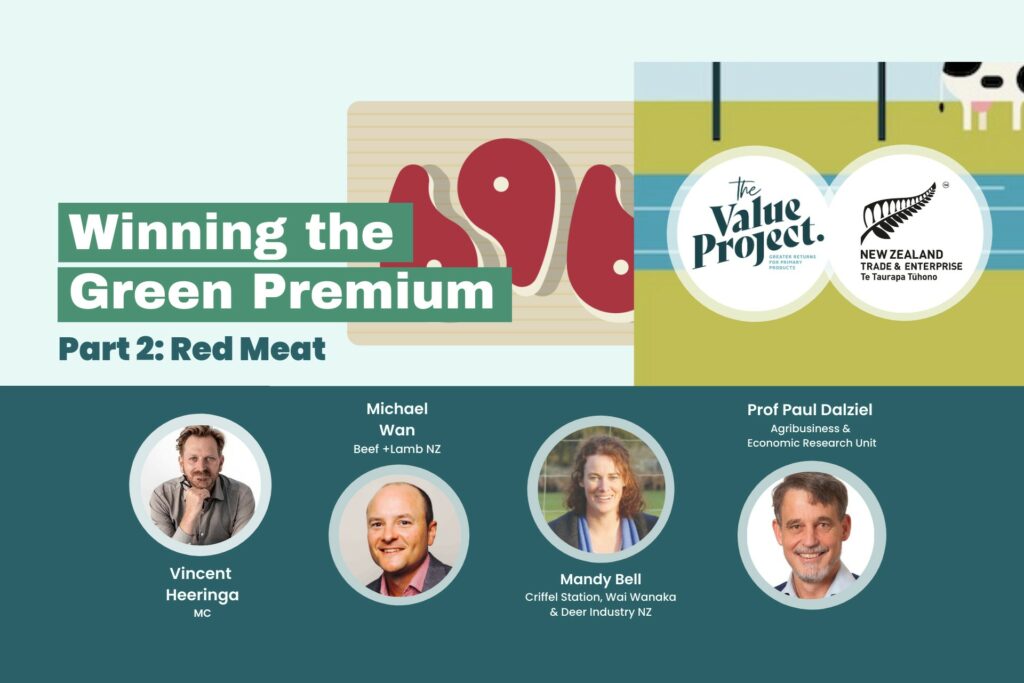

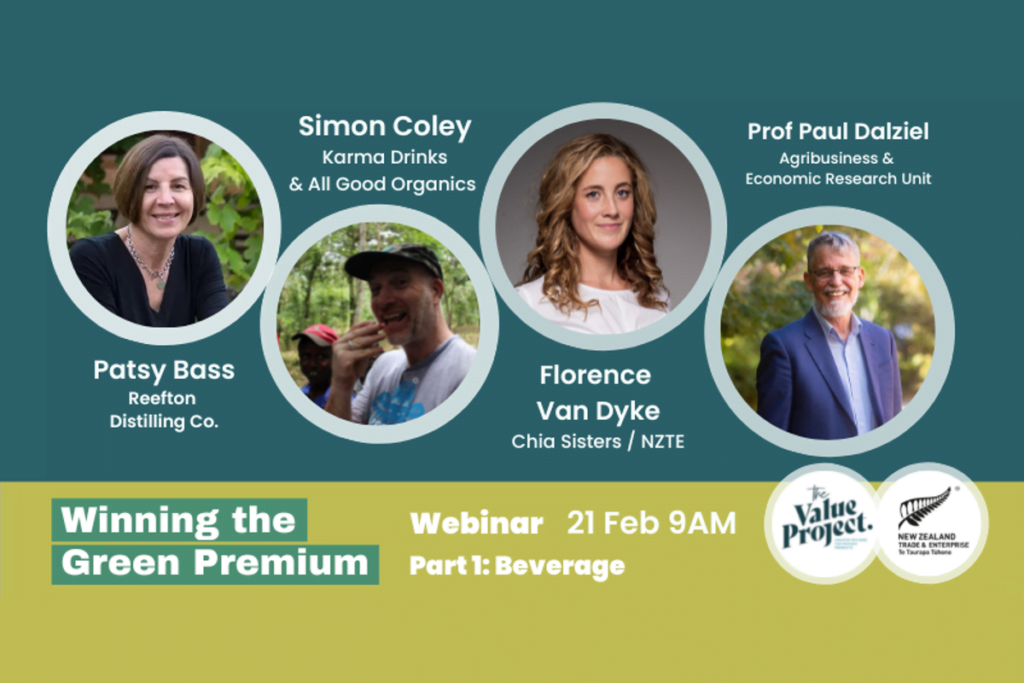
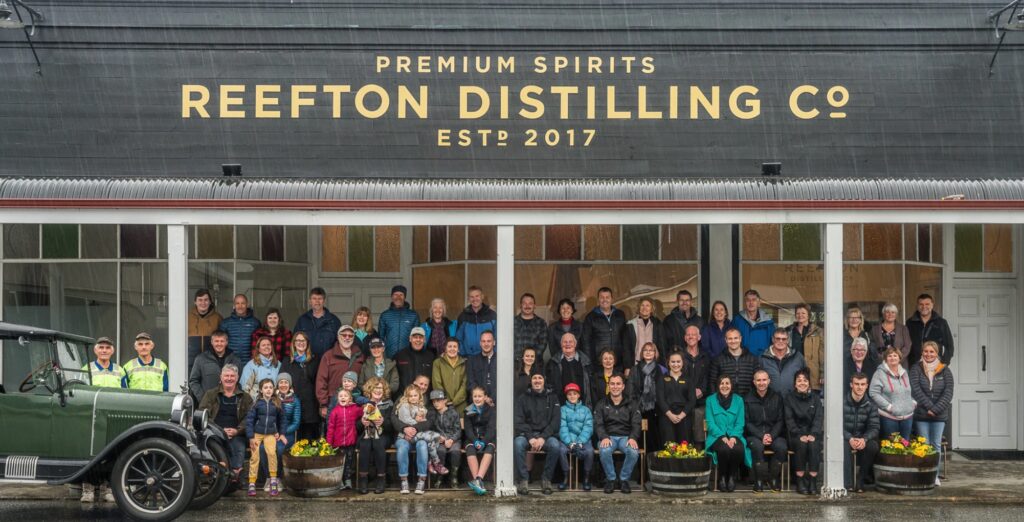
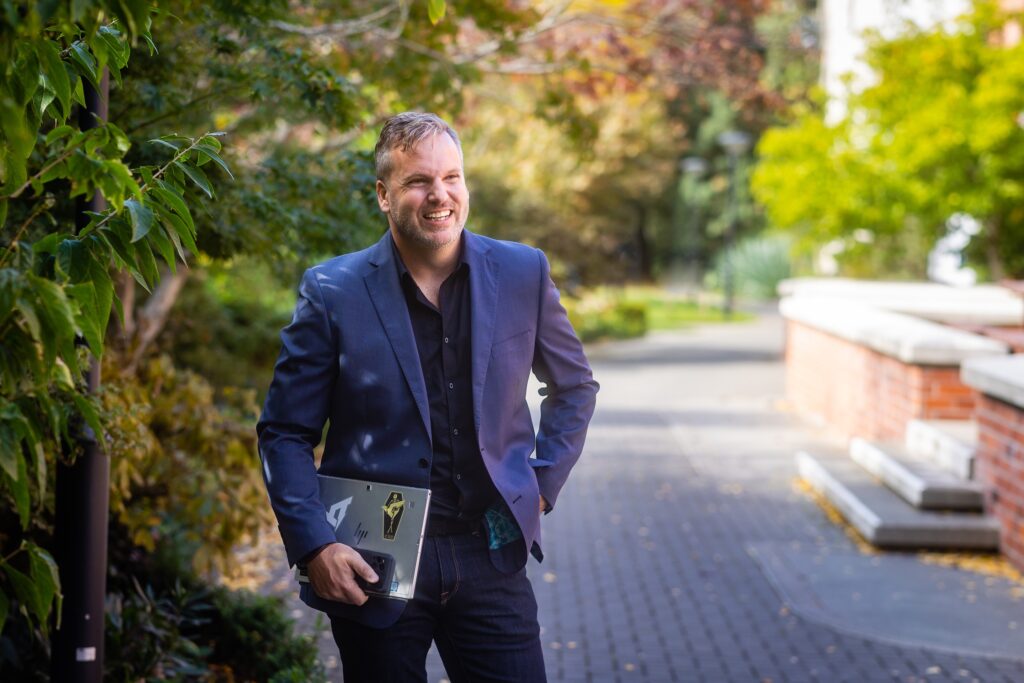

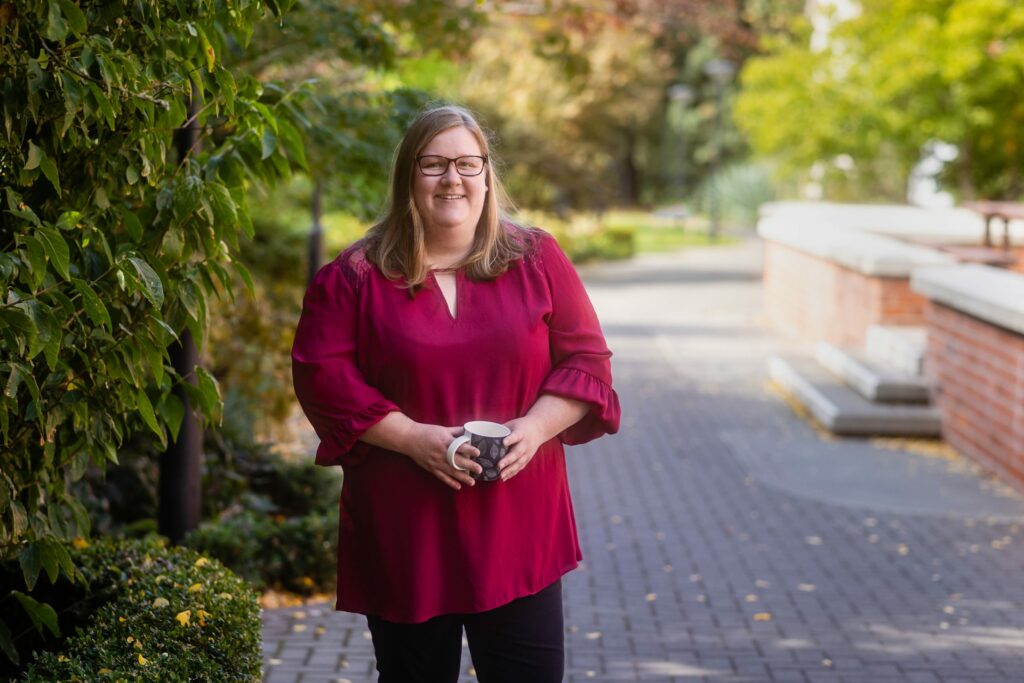
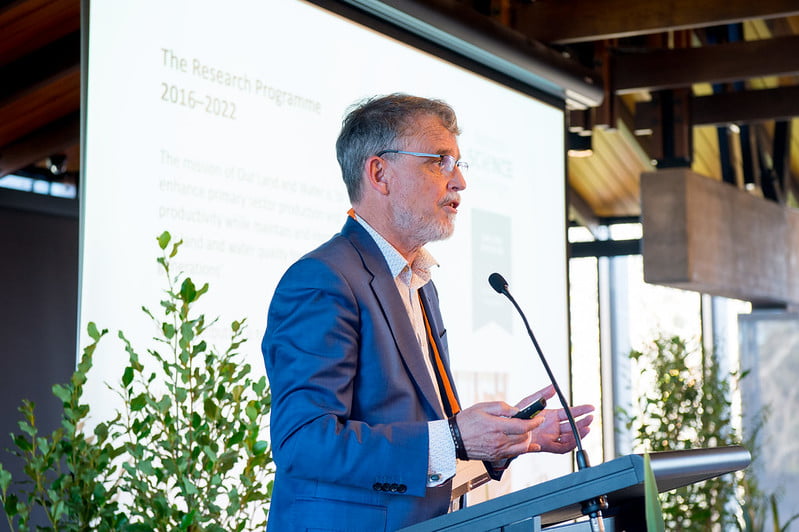
An instruction is not a plan: how to create value in the primary sector
Bill Kaye-Blake, principal economist with NZIER, reflects on 20 years of research into creating greater value in New Zealand’s primary sector. I’ve…